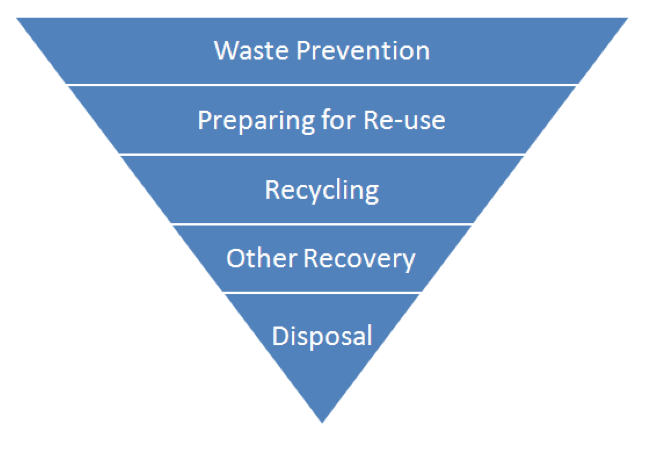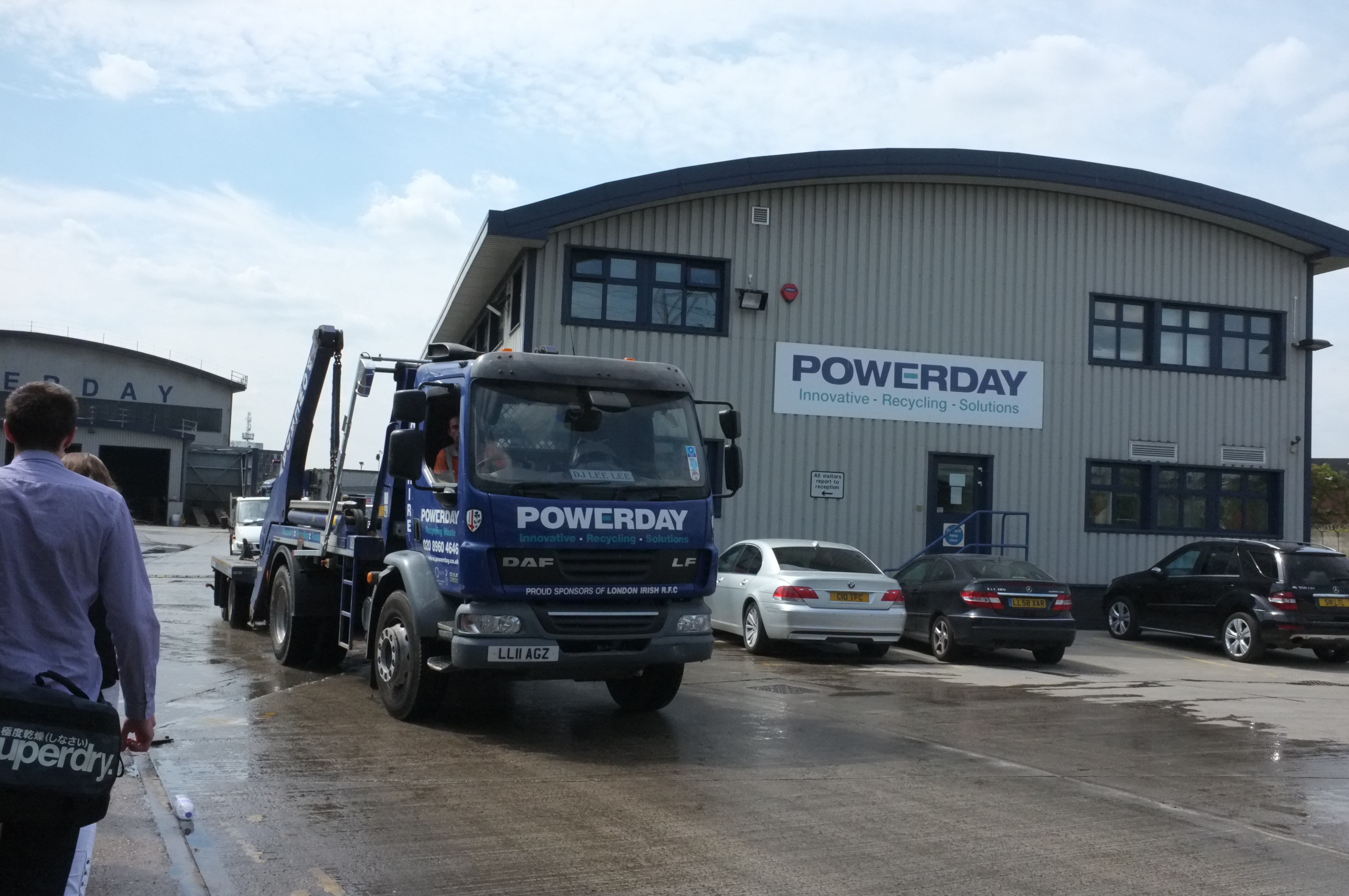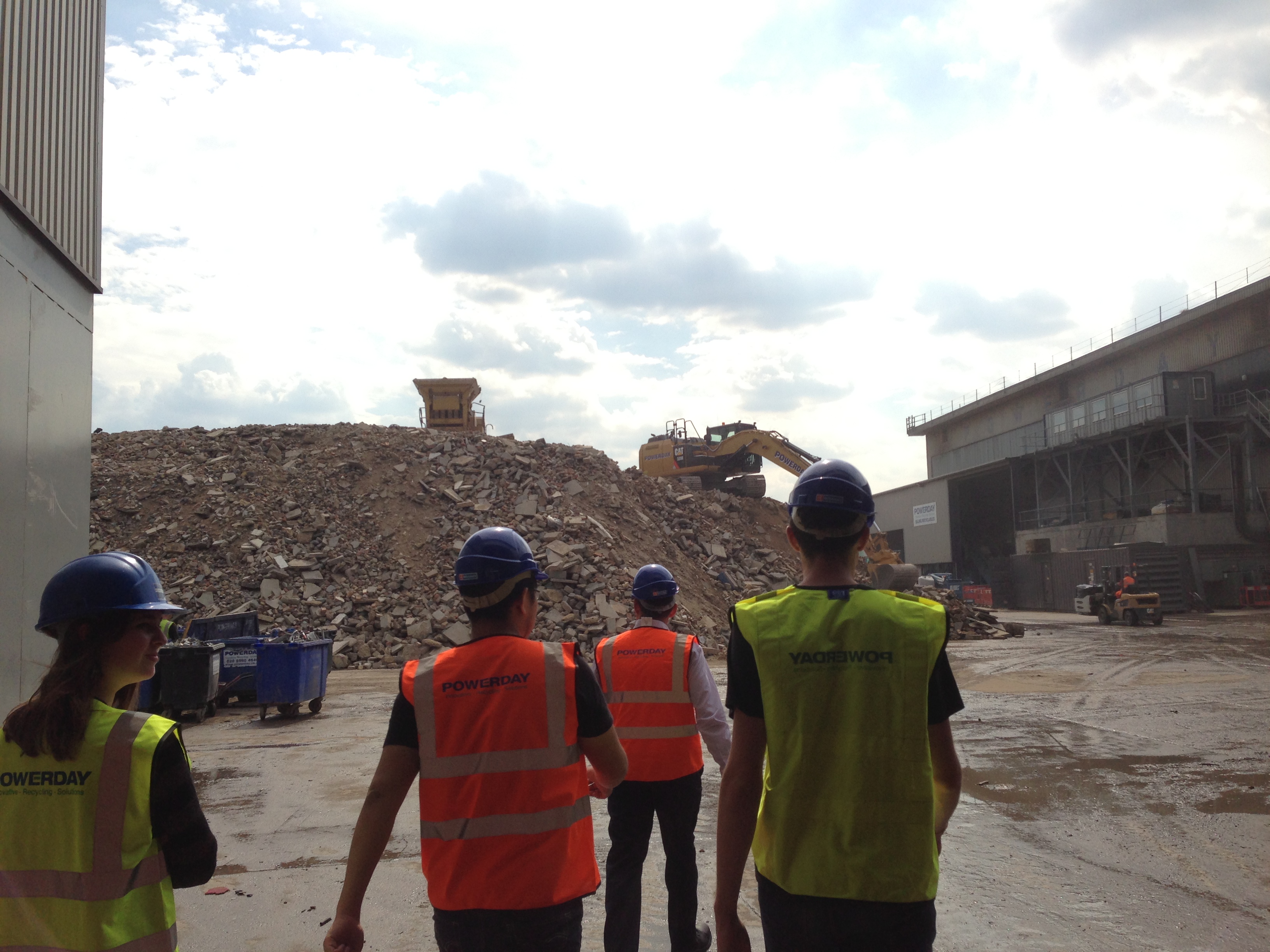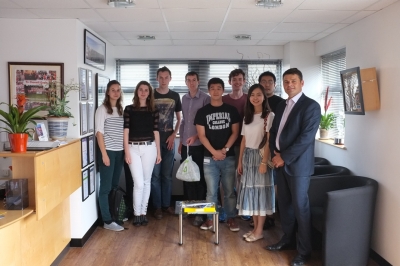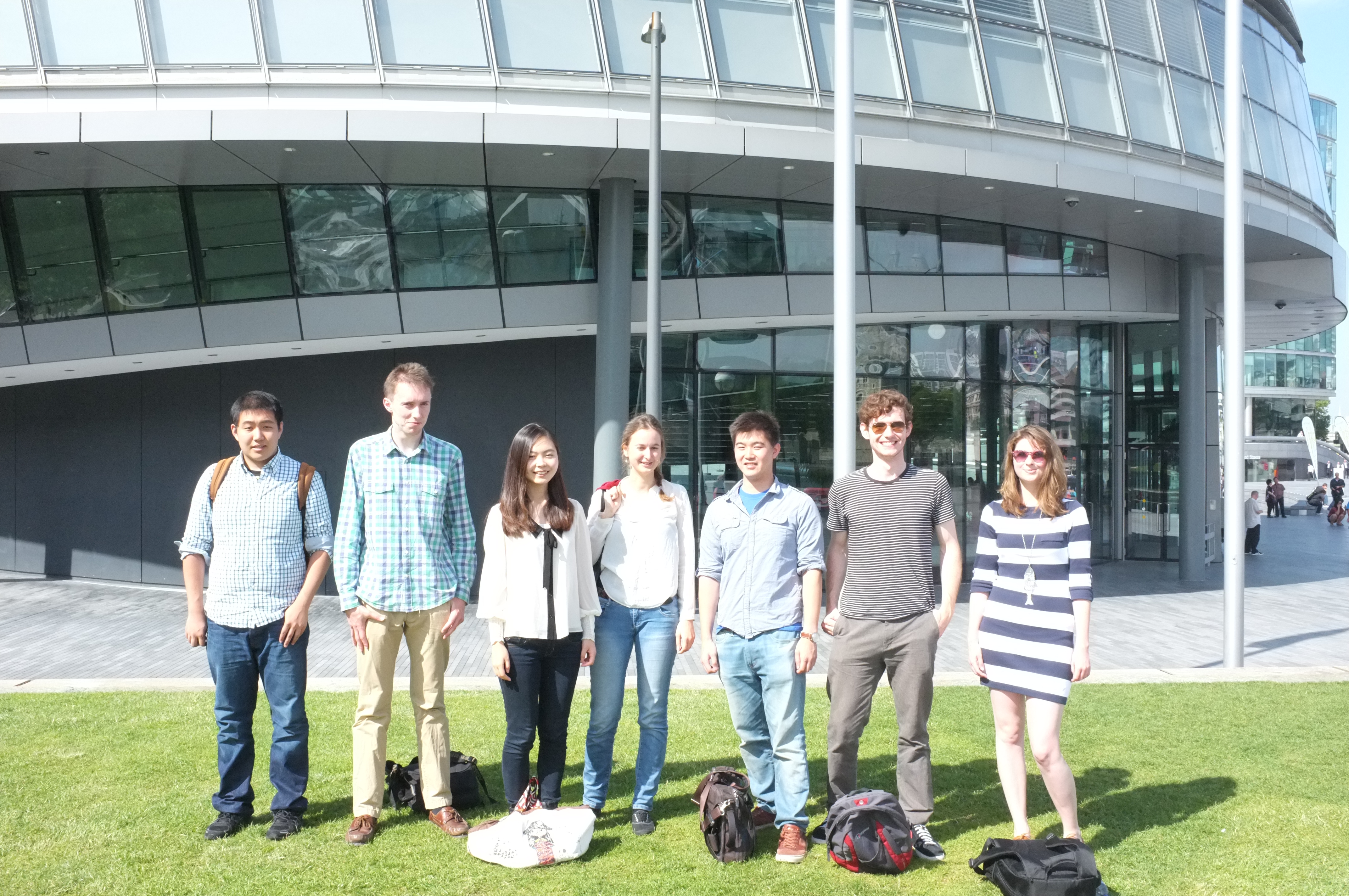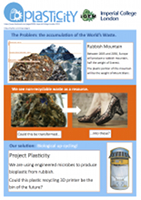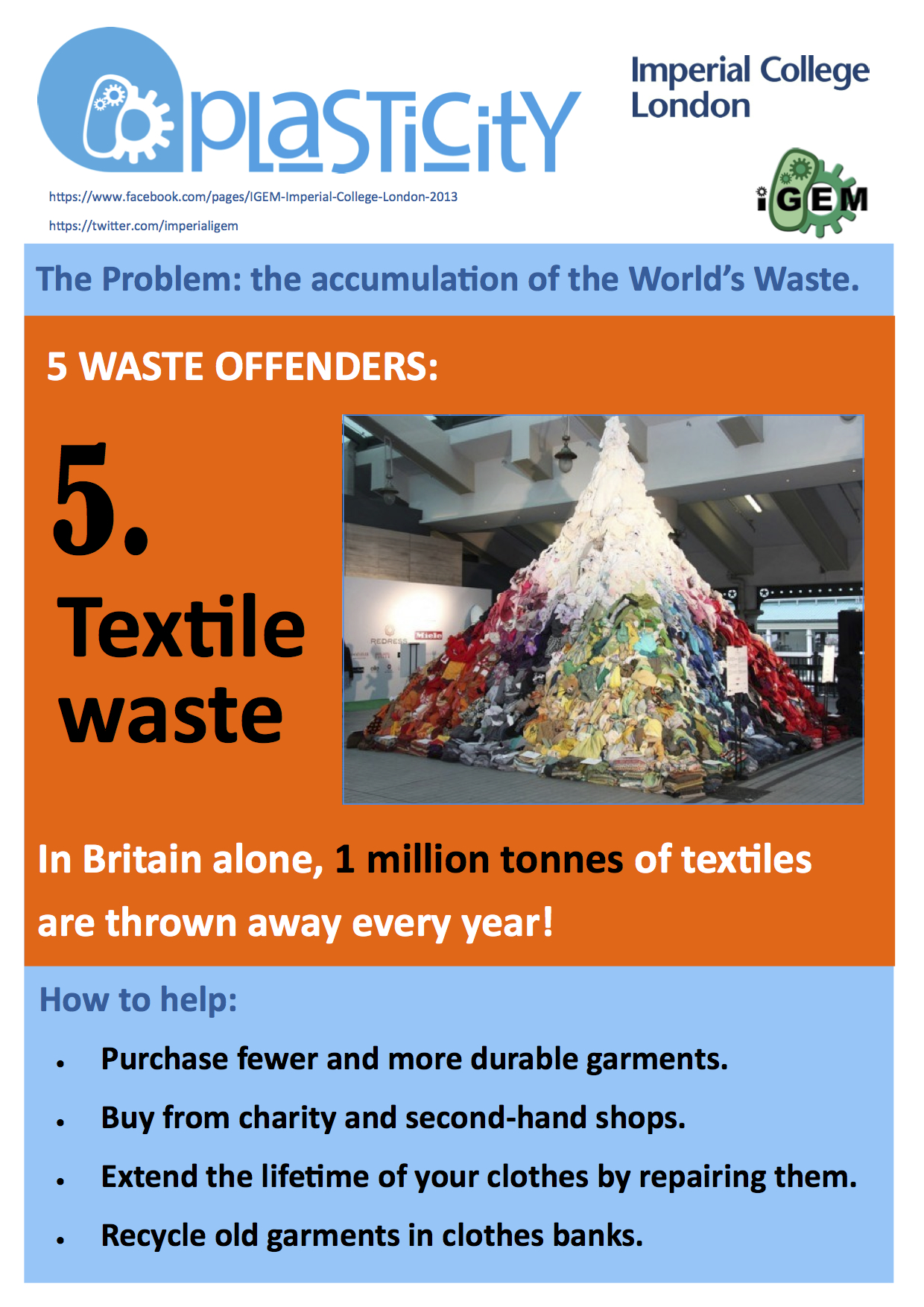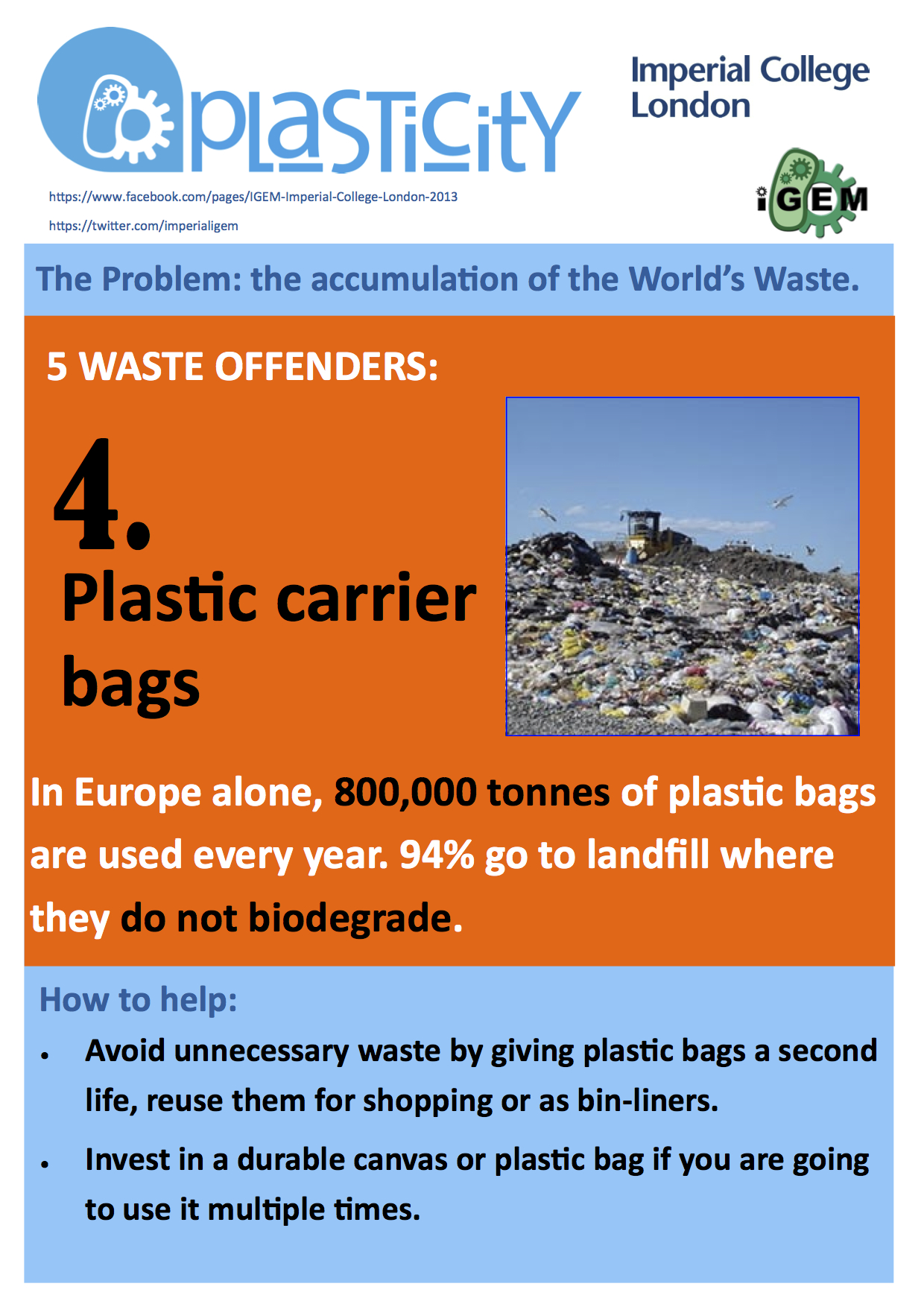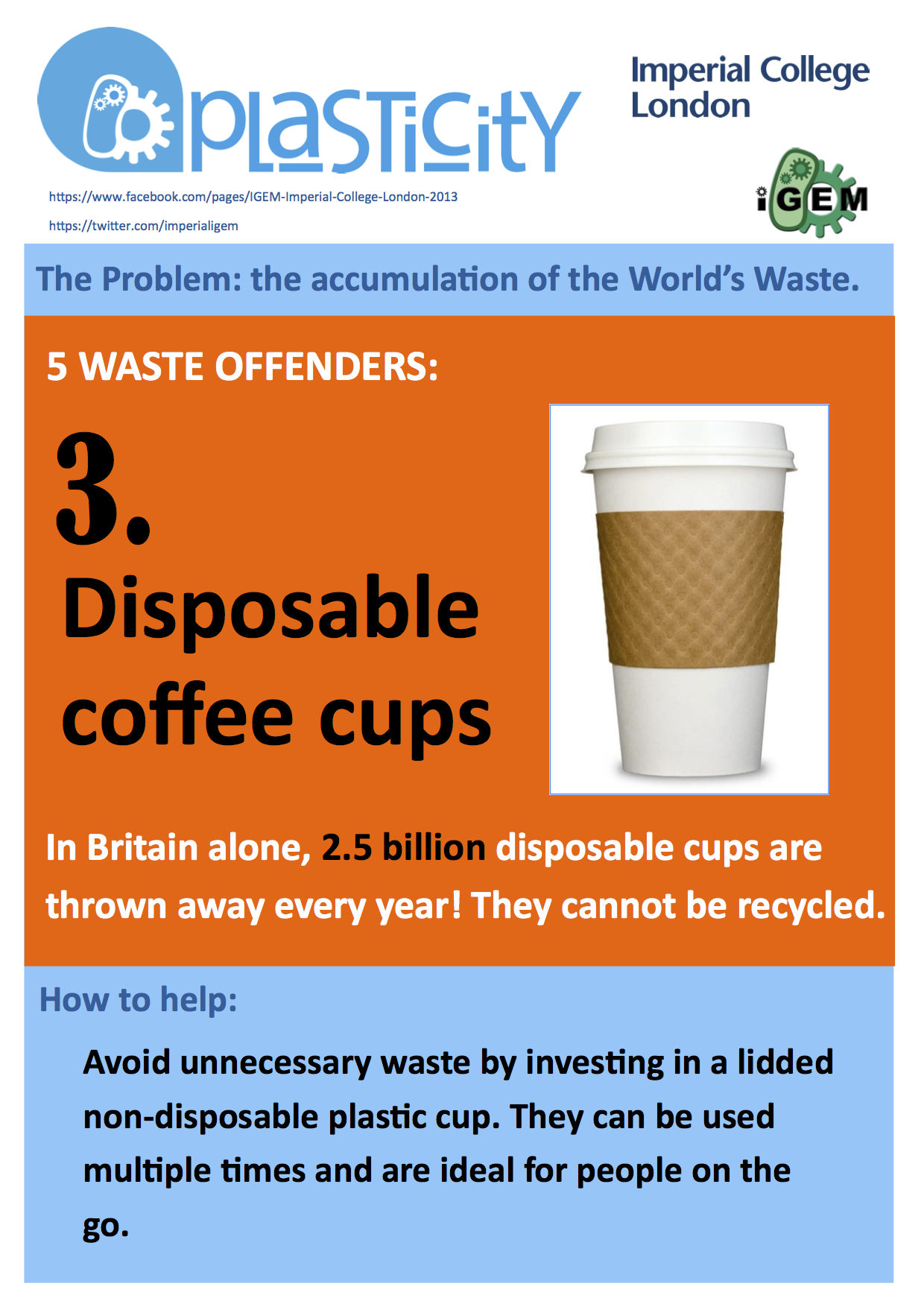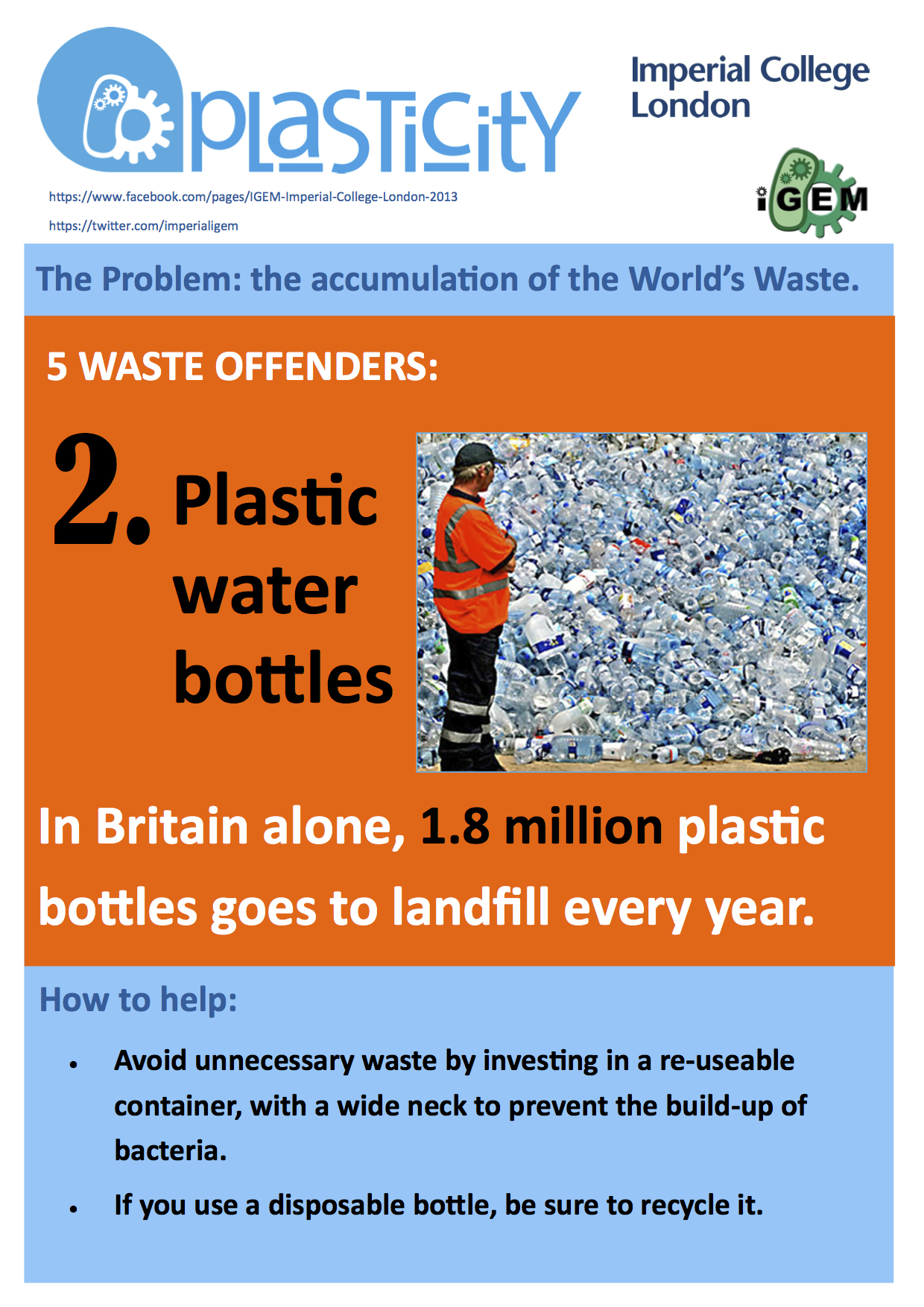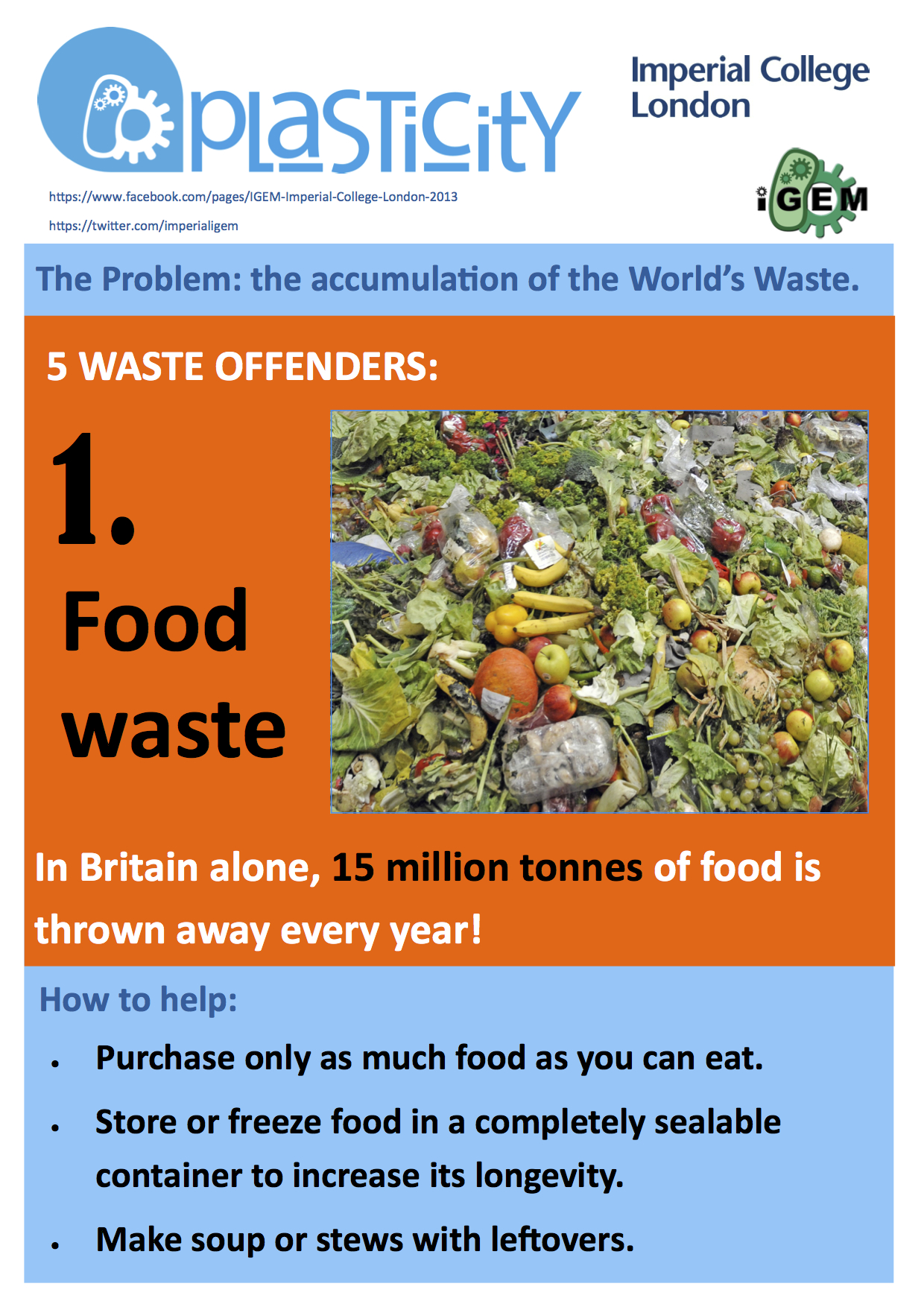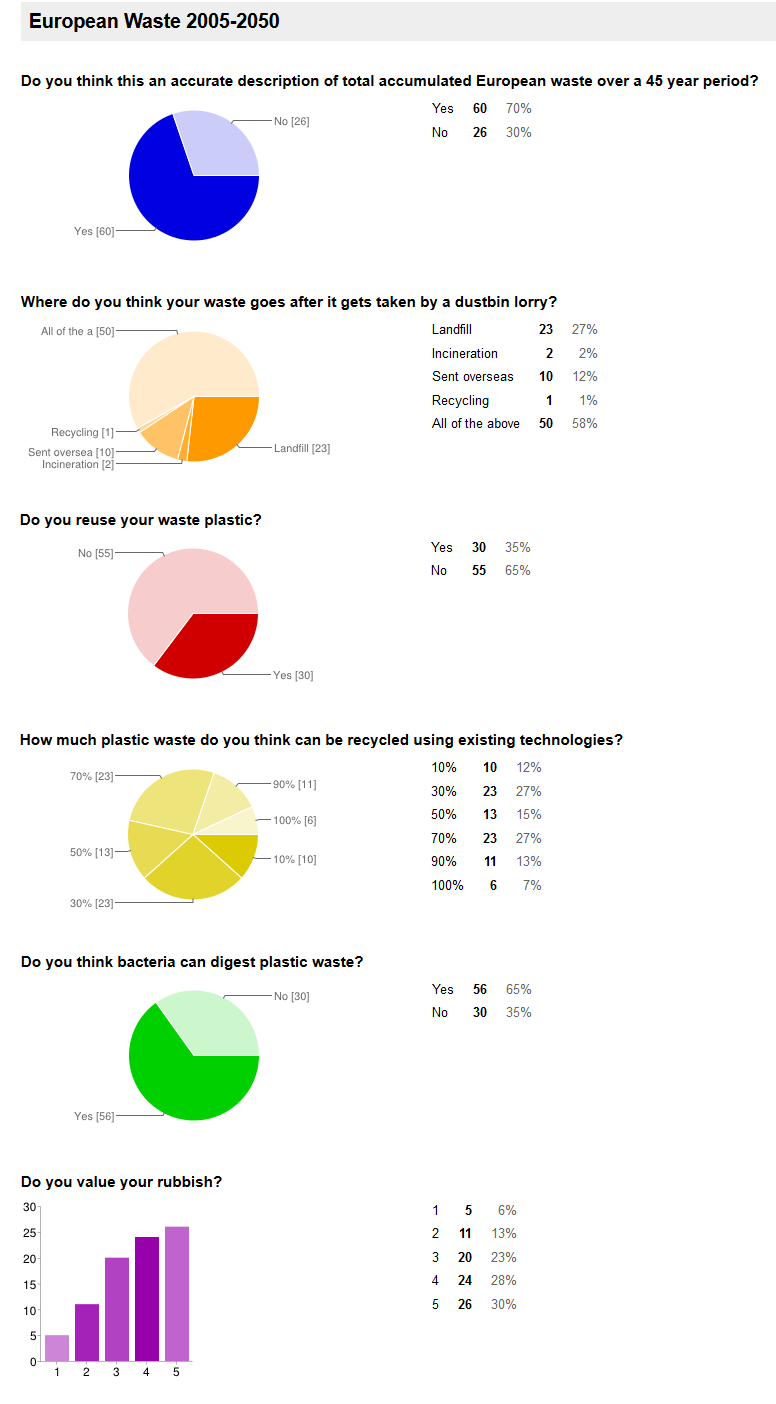Team:Imperial College/Managing Waste
From 2013.igem.org
| Line 23: | Line 23: | ||
We visited local government, the Greater London Authority (GLA) at [http://www.london.gov.uk/city-hall/ City Hall]. City Hall is located between London Bridge and Tower Bridge, on the south bank of the Thames. We spoke to Doug Simpson (Principal Policy and Programme Officer, Waste and Energy Team) about our project and more generally about waste management issues for London and the UK. The feedback about our project was incredibly positive and we gained an incredible insight into government perspectives on waste management which have directly shaped our project. | We visited local government, the Greater London Authority (GLA) at [http://www.london.gov.uk/city-hall/ City Hall]. City Hall is located between London Bridge and Tower Bridge, on the south bank of the Thames. We spoke to Doug Simpson (Principal Policy and Programme Officer, Waste and Energy Team) about our project and more generally about waste management issues for London and the UK. The feedback about our project was incredibly positive and we gained an incredible insight into government perspectives on waste management which have directly shaped our project. | ||
| - | [[File:Imperialcityhall.JPG|center|350px | + | [[File:Imperialcityhall.JPG|center|350px]] |
"The Mayor’s vision it to turn London’s waste into a lucrative commodity through innovative waste recovery techniques and technologies. Imperial's research project to extract valuable substances from non-recyclable waste that can then be used to make new products sits well with achieving the Mayor’s vision." <b>Doug Simpson (Principal Policy and Programme Officer, Waste and Energy Team)</b> | "The Mayor’s vision it to turn London’s waste into a lucrative commodity through innovative waste recovery techniques and technologies. Imperial's research project to extract valuable substances from non-recyclable waste that can then be used to make new products sits well with achieving the Mayor’s vision." <b>Doug Simpson (Principal Policy and Programme Officer, Waste and Energy Team)</b> | ||
Revision as of 18:15, 29 September 2013
Contents |
Managing waste is a both a technological and social challenge
Our society faces an extraordinary waste management challenge. It is clear that multiple solutions are needed to address these global challenges with local solutions. Our solution for dealing with waste is a technological one. It aims to reduce the harmful impacts that incineration and landfilling have on our environment and also to retain the resources locked up in the waste in a useable form. However, it is clear that we should not be relying on after-the-event solutions to try to solve problems which are caused to a large extent by the choices we make. The waste hierarchy shown below indicates the decreasing dependence we should place on subsequent steps in our bid to reduce waste.
Powerday Visit
We visited Powerday recovery centre in west London. Powerday is a family owned recycling and waste management company founded in 1980. Simon Little (Powerday, Sales & Marketing Director) gave us a tour of the site and provided an insight into the UK waste management industry. During our visit we identified a source of non-recyclable waste, termed solid recovered fuel (SRF) which we have used in our experiments.
"It was really interesting to meet the students and hear the outline of their project and I hope the visit to our Materials Recycling Facility gave the project team an insight to how materials are handled today. The waste and resource management sector is in a period of unprecedented change and so is a fertile ground for innovation and I look forward to seeing how this project develops. Powerday continually invests in new plant and machinery and have an interest in future renewable energy projects so supporting this type of research is an obvious step for us. Finding new ways of recovering plastics will play a part in the resource efficient supply chains of the future". Simon Little (Powerday, Sales & Marketing Director)
Our visit also featured on the Powerday corporate website [http://www.powerday.co.uk/news/imperial-college-london-students-visit-powerday Imperial college students visit Powerday] and on their twitter account @PowerdayPLC
City Hall Meeting
We visited local government, the Greater London Authority (GLA) at [http://www.london.gov.uk/city-hall/ City Hall]. City Hall is located between London Bridge and Tower Bridge, on the south bank of the Thames. We spoke to Doug Simpson (Principal Policy and Programme Officer, Waste and Energy Team) about our project and more generally about waste management issues for London and the UK. The feedback about our project was incredibly positive and we gained an incredible insight into government perspectives on waste management which have directly shaped our project.
"The Mayor’s vision it to turn London’s waste into a lucrative commodity through innovative waste recovery techniques and technologies. Imperial's research project to extract valuable substances from non-recyclable waste that can then be used to make new products sits well with achieving the Mayor’s vision." Doug Simpson (Principal Policy and Programme Officer, Waste and Energy Team)
Human Practices Panel
We assembled a panel of experts, including synthetic biologists, social scientists and representatives of the bioplastics industry. We discussed at length the core societal, ethical and technological challenges surrounding waste management, recycling, synthetic biology and specific aspects about our project.
Insert video here
Insert questions and notes on what we learned.
Recycling Posters
To help raise awareness of our project and at the same time promote recycling awareness we decided to create these posters. Click on the posters to download a PDF version
Engaging with waste management stakeholders
We engaged with an array of individuals and organisations that are critical of Synthetic Biology and are supporters of increased recycling and moving towards a less consumerist society.

"I believe that by the end of this century we will be able to mine our landfills and use their contents..." [http://www.greentechforum.net/green-technology-forum/2013/3/25/waste-doesnt-have-to-be-wasted-1.html Green Technology Forum]
"Nem feltétlenül igaz tehát az az elkeserítő jövőkép, amelyben minden eláraszt a műanyag szemét. Remélhetőleg a közeljövőben a műanyaggyártás egyre nagyobb mértékben átáll a komposztálható műanyagok előállítására, a már meglevő szemét eltüntetésére pedig hatékony és környezetkímélő módszereket sikerül kidolgozni." [http://criticalbiomass.blog.hu/2013/09/06/mert_ez_mu-anyag Critical Biomass]
Waste 5 minutes of your time Quiz
Whilst surveys can be a waste of time because it is difficult to get a true representative cohort, we still thought it would be useful to get some idea about whether people value waste. Therefore we put together a Quiz and sent the link throughout our social media networks. 86 people responded.
 "
"




